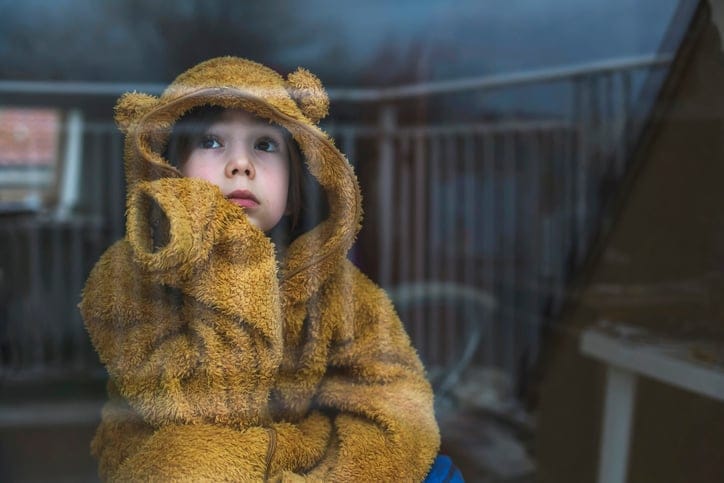Our childhood experiences leave lasting marks that shape who we become. Even if we overcome the most difficult circumstances, certain habits and patterns we learned early on can be tough to break. For those who had particularly challenging childhoods, certain traits often emerge. These can be both strengths and struggles, reminders of the past and catalysts for growth. Let’s explore this complex impact and how we can move forward.
1. They often become perfectionists.

As Psychology Today points out, perfectionism is a natural response to abuse as the child feels that if they just try a little harder, they can be “successful” in whatever they endeavor to do. Kids who grew up like this are the ones double and triple-checking their work, stressing over the tiniest details. This stems from a deep-rooted desire to control their environment, something they couldn’t do as kids. They’re often hard on themselves, striving for flawlessness in everything they do. It’s like they’re trying to compensate for the chaos of their past by making sure their present is as perfect as possible.
You may also like: People Who Rarely Exhibit Empathy Usually Have These 16 Traits
2. They develop hyper-independence.

They learned early on that they had to fend for themselves, so they’re not big on asking for help. This can make them appear strong and self-sufficient, but it’s often a defense mechanism. They might struggle to accept support or kindness because, in their past, it was every man for themselves. Hyper-independence is a natural response to trauma, Verywell Mind reveals, but it’s one that can be incredibly limiting and damaging.
Don’t miss out – follow Bolde for exclusive content daily
3. They avoid emotional intimacy at all costs.

Getting close to someone on an emotional level? That’s a big challenge for those with unhappy childhoods. They might keep people at arm’s length, avoiding deep connections. This isn’t because they don’t care; it’s because they’re protecting themselves. They’ve been let down before, so they build walls to ensure it doesn’t happen again. Forming a meaningful relationship with them takes patience and understanding.
You may also like: People Who Lack Self-Awareness Frequently Say These 14 Things
4. They’re unnecessarily hypervigilant.

People with difficult childhoods can be constantly on edge, always on the lookout for potential threats. It’s like their radar is always on high alert. This hypervigilance can make them excellent problem solvers, but it also means they rarely relax. They’re the ones noticing things others don’t, but this constant state of alert can be mentally exhausting.
Don’t miss out – follow Bolde for exclusive content daily
5. They struggle with their self-esteem.

Low self-esteem is a common trait among those who had unhappy childhoods. They might doubt their worth and feel undeserving of happiness or success. This is often a reflection of the negative messages they received during their early years. They might come across as confident, but beneath the surface, there’s a constant battle with feelings of inadequacy.
You may also like: 15 Adult Traits of People Who Were Bullied As Kids
6. They have a strong sense of responsibility.

People who had rough childhoods often feel like they’re carrying the weight of the world on their shoulders from a young age. They’re the ones who always seem to have their act together, handling life’s challenges with a sort of seasoned grace. This comes from having to grow up too fast, taking on roles and responsibilities that were way beyond their years. While this makes them incredibly reliable and mature, it can also lead to them shouldering more burdens than they need to.
Don’t miss out – follow Bolde for exclusive content daily
7. They’re Great Observers.

Having had to navigate unpredictable environments, they become keen observers. They’re the ones in the group who notice the small changes in someone’s mood or the subtle dynamics in a room. This skill was a survival tool in their childhood, helping them to anticipate and adapt to the ever-changing moods and situations around them. However, it can also mean they overanalyze situations, reading into things more than necessary.
You may also like: 30 Things Men Do When They’re Having A Midlife Crisis
8. They Gravitate Towards Routine.

Stability might have been a rare commodity in their childhood, so as adults, they might really value routine. They find comfort in predictability, in knowing what to expect. This can make them excellent planners and organizers, but it also means they might struggle with spontaneity. Unexpected changes or last-minute plans? Those can throw them off balance more than most.
Don’t miss out – follow Bolde for exclusive content daily
9. They Embrace Solitude.

People who grew up in unhappy homes might really value their alone time. Solitude becomes their sanctuary, a place where they can be themselves without fear of judgment or conflict. This love for quiet moments isn’t about being antisocial; it’s about finding peace and recharge in their own company. However, this preference for solitude can sometimes be misinterpreted as aloofness or disinterest in socializing.
You may also like: 20 Ways A Narcissist Acts When They Can’t Control You
10. They Have a Strong Creative Streak.

Creativity often flourishes in the face of adversity, and those with challenging childhoods are no exception. They might turn to art, music, writing, or other creative outlets as a form of expression and escape. These activities provide a safe space to process their experiences and emotions. While this creative flair is a strength, it can also be a solitary pursuit, furthering their sense of isolation.
Don’t miss out – follow Bolde for exclusive content daily
11. They Tend to Be Old Souls.

Growing up fast can turn these people into old souls. They often have a depth and maturity that belies their age, having dealt with more than their fair share of life’s challenges early on. This wisdom makes them insightful and thoughtful, but it can also create a sense of detachment from their peers, who might not have faced similar experiences.
You may also like: 15 Things People Who Don’t Put Up With Anyone’s BS Have In Common
12. They Overcompensate in Relationships.

In an effort to create the happy family dynamic they missed, some might overcompensate in their relationships. They’re the ones going above and beyond, sometimes to their own detriment. They pour their heart and soul into making sure everyone else is happy, often forgetting to take care of themselves. While this generosity is admirable, it can lead to unbalanced relationships where their needs are not met.
Don’t miss out – follow Bolde for exclusive content daily
13. They Develop a Strong Sense of Justice.

Having felt the sting of unfairness in their formative years, they often develop a keen sense of justice. They’re the ones standing up for the underdog, advocating for fairness, and challenging injustices. This trait makes them compassionate and formidable allies, but it can also weigh heavy on them, as they’re constantly aware of the inequities and wrongs in the world around them.
Like what you’ve read? Follow Bolde on MSN for more!



